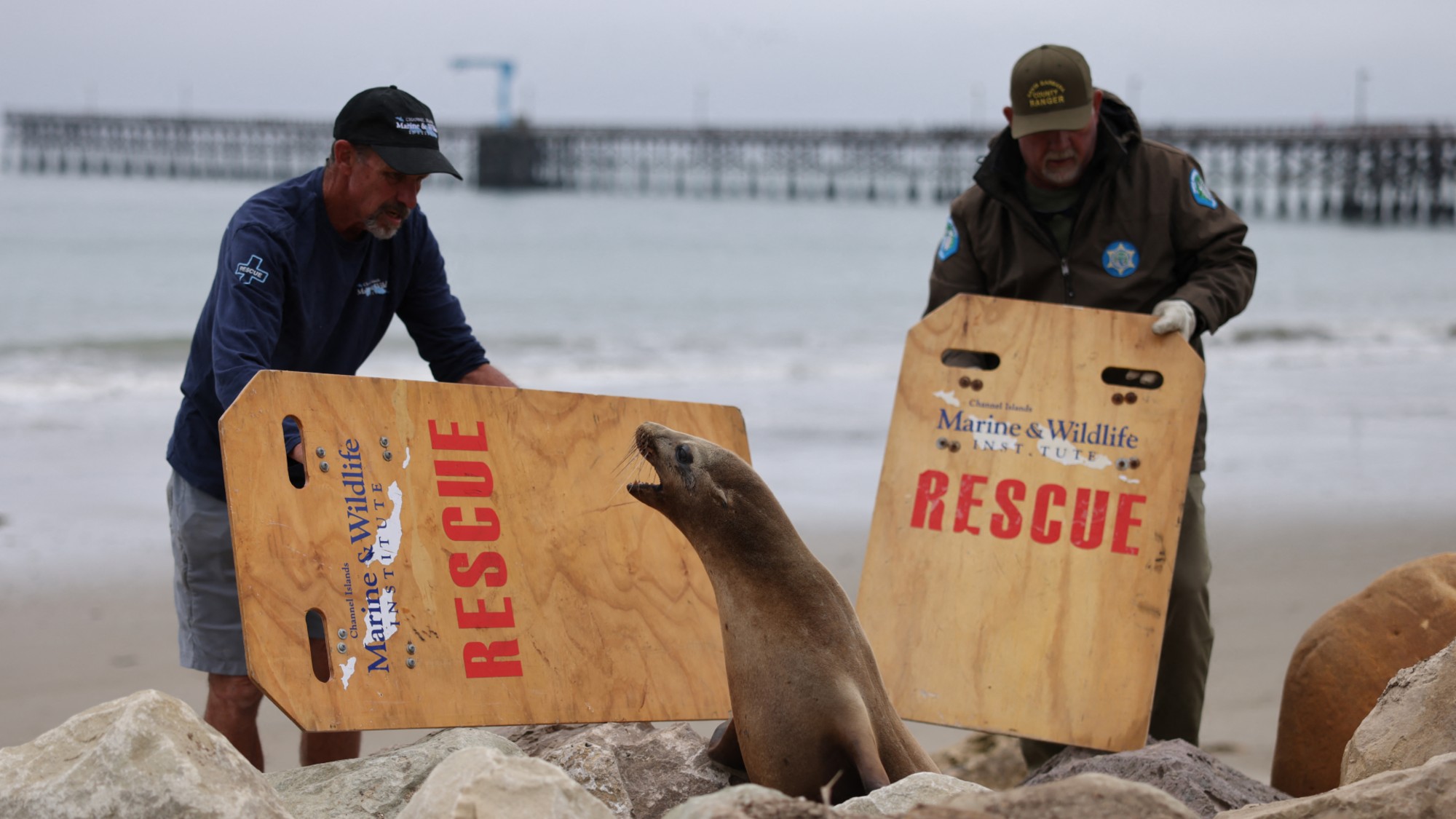Toxic algae could be causing sea lions to attack
A particular algae is known to make animals more aggressive


A free daily email with the biggest news stories of the day – and the best features from TheWeek.com
You are now subscribed
Your newsletter sign-up was successful
Sea lions do not often attack humans, but a slew of recent assaults points to an algae that scientists say is poisoning the animals — and making them more aggressive. This algae releases a neurotoxin that affects sea lions' brains, causing them to behave erratically and leading to attacks on humans that are almost never seen.
Several attacks from sea lions have been reported in recent months, particularly in California, where the animals are prevalent. This includes a 15-year-old girl in Long Beach who was bitten by a sea lion while swimming in the ocean. Beyond attacking humans, the algae can also lead to the deaths of these typically docile creatures.
Making sea lions more aggressive
The algae, Pseudo-nitzschia, is currently blooming in southern California and can "release a potent neurotoxin called domoic acid," said National Geographic. This acid is highly toxic to marine life and "overstimulates the nerves in these animals," making them unusually aggressive and prone to attacking humans. One man who was attacked told Vice the sea lion's actions were "demonic," "unhinged" and "wild." Additionally, domoic acid can cause affected sea lions to "show signs of illness like head-bobbing or seizures," sometimes causing death. It can also be fatal to humans in high doses, according to wildlife experts.
The Week
Escape your echo chamber. Get the facts behind the news, plus analysis from multiple perspectives.

Sign up for The Week's Free Newsletters
From our morning news briefing to a weekly Good News Newsletter, get the best of The Week delivered directly to your inbox.
From our morning news briefing to a weekly Good News Newsletter, get the best of The Week delivered directly to your inbox.
The acid has a "structure similar to glutamate, a neurotransmitter that naturally signals between nerve cells in the central nervous system, helping nerves to fire," said National Geographic. When the acid "binds to the receptors, it stays there longer than glutamate would, triggering the concerning behavior." A wind-driven "upwelling of deep ocean water provides nutrients that fuel California's rich marine ecosystem," said NOAA. This comes at a cost, as the "same upwelling can also feed rapid growth of the algae and the toxin it produces."
'We don't have the resources to rescue every one'
While most of the sea lion attacks are limited to minor bites, environmentalists have become concerned that continued outbreaks of the algae could keep killing the animals; in 2023, an uptick of domoic acid in California led to at least 1,000 sea lions dying, according to the Los Angeles Times. And while sea lions are the most widely reported, other animals can be affected, too. "50 dolphins have also been stranded on area beaches, but because they almost always die from ingesting domoic acid, they are usually euthanized," said the Times.
It is possible to rescue and treat the infected sea lions — but doing so is hard. That is because an "adult female can weigh up to 250 pounds and an adult male up to 1,000 pounds, requiring several people to move each animal," said the Times. The algae blooms are "also getting worse over time due to human activity that exacerbates the intensity, timing and scale of the stranding events," said John Warner, the chief executive of San Pedro's Marine Mammal Care Center, to the Times.
This is also the "fourth year in a row that there has been a major outbreak from domoic acid in California, a troubling development that is becoming more intense, common and unpredictable," said The Guardian. However, there is good news for sea lions who do get treatment, as 50% to 65% of the hospitalized sea lions have a chance of survival. But it "does take an emotional toll in the field," Warner said to The Guardian. They are "trying hard to get to as many animals as we can, but we don't have the resources to rescue every one that is out there."
A free daily email with the biggest news stories of the day – and the best features from TheWeek.com
Justin Klawans has worked as a staff writer at The Week since 2022. He began his career covering local news before joining Newsweek as a breaking news reporter, where he wrote about politics, national and global affairs, business, crime, sports, film, television and other news. Justin has also freelanced for outlets including Collider and United Press International.
